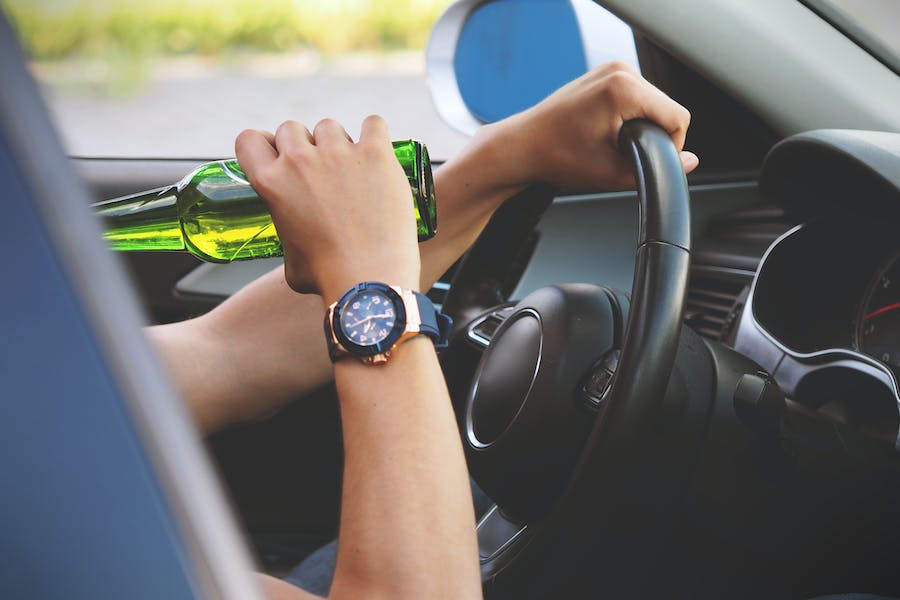Driving while intoxicated is a severe crime that has severe consequences for all involved parties, including the driver, passengers, and other drivers on the road. It is imperative to comprehend the effects of drunk driving and how to avoid it.
Drunk driving is a significant contributor to numerous accidents and fatalities every year, with almost one-third of all fatal accidents involving an intoxicated driver. In today’s fast-paced world, it is critical to remember the importance of safety and avoid drunk driving.
The consequences of this careless behavior go far beyond mere inconvenience, with immediate physical and emotional harm caused by these accidents and legal repercussions for those who engage in drunk driving.
This article delves into the legal ramifications of accidents caused by drunk driving, with a focus on accountability and justice.
Therefore, by understanding the legal framework of DUI, we can appreciate the significance of holding individuals responsible for their actions.
What Are The Repercussions For Drunk Driving?
Given below are the legal, financial and personal repercussions of frunk driving that you must know—
1. The Legal Consequences
Driving under the influence of alcohol is considered a severe criminal offense in many parts of the world, with the primary goal of ensuring justice for victims and holding the responsible parties accountable.
The penalties and charges associated with drunk driving accidents can differ based on jurisdiction, but they usually include fines, license suspension, mandatory alcohol education programs, and even imprisonment.
If a person drives a vehicle while their blood alcohol concentration (BAC) is above the legal limit, they can face serious consequences.
These penalties may include fines, license suspensions, and even imprisonment.
When drunk driving accidents cause the death of another person, the driver can face vehicular manslaughter or vehicular homicide charges.
These charges carry severe penalties, including hefty fines, long license suspensions, and significant prison sentences.
Therefore, it is essential to avoid drunk driving at all costs to prevent jeopardizing the safety of oneself and others.
2. The Financial Consequences
Driving under the influence of alcohol can result in serious financial repercussions.
These can include the following:
- Fines.
- Legal expenses.
- Higher insurance rates.
- Mandatory therapy.
- Lost income.
Moreover, insurance companies may pay for damages caused by drunk driving, but they often investigate the incident to minimize their responsibility.
Also, you might have to find a good lawyer to help you navigate the case. To find the best legal help, you can check out Jebaily Law Firm here.
The aftermath of a DUI can put a strain on relationships and family life. The costs of medical treatment, legal fees, and repairing or replacing damaged vehicles add to the financial burden.
The emotional distress caused by the accident can further complicate matters, making it difficult for families to cope. To summarize, drunk driving accidents can have devastating financial and emotional effects on both individuals and families.
3. The Personal Consequences
DUI accidents can have a significant impact on the human body. These events can result in life-altering injuries such as broken bones, spinal cord injuries, and traumatic brain injuries.
Recovery often becomes a struggle. It involves surgeries, therapies, and rehabilitation sessions.
Moreover, emotional scars also linger.
The trauma of experiencing or witnessing a drunk driving accident leads to lasting psychological effects. It leads to post-traumatic stress disorder (PTSD), anxiety, guilt, and depression.
The loss of life due to drunk driving is not just a momentary tragedy but a persistent ache that echoes through time.
Thus, families are left to navigate a landscape of grief, facing a void that cannot be filled.
Each individual lost to drunk driving leaves an indelible mark on the lives of those who loved them. Additionally, the emotional scars borne by survivors and loved ones are a constant reminder of the price paid for someone else’s negligence.
Avoiding Drunk Driving
To avoid a DUI, follow these tips:
- Know your limits: Everyone’s tolerance for alcohol varies, so it’s crucial to know your limits. Consider using a breathalyzer device to test your BAC before driving.
- Plan: If you plan to drink alcohol, plan to get home safely. Consider using a sober driver, ride-sharing services, or public transportation. Have a backup plan in case your original plan fails.
- Stay aware on the road: Following traffic laws, driving carefully, and staying alert to your surroundings are essential for avoiding a DUI. Wear your seatbelt and avoid distractions like texting while driving.
- Avoid mixing alcohol and medications: Mixing alcohol with prescription or over-the-counter medications can increase the risk of impaired driving. Consult your doctor or pharmacist to determine if it’s safe to consume alcohol while taking medication.
- Seek help if needed: If you struggle with alcohol addiction or have difficulty controlling your consumption, seek help from a medical professional or support group. Many resources are available to help individuals overcome alcohol addiction and make healthier choices.








